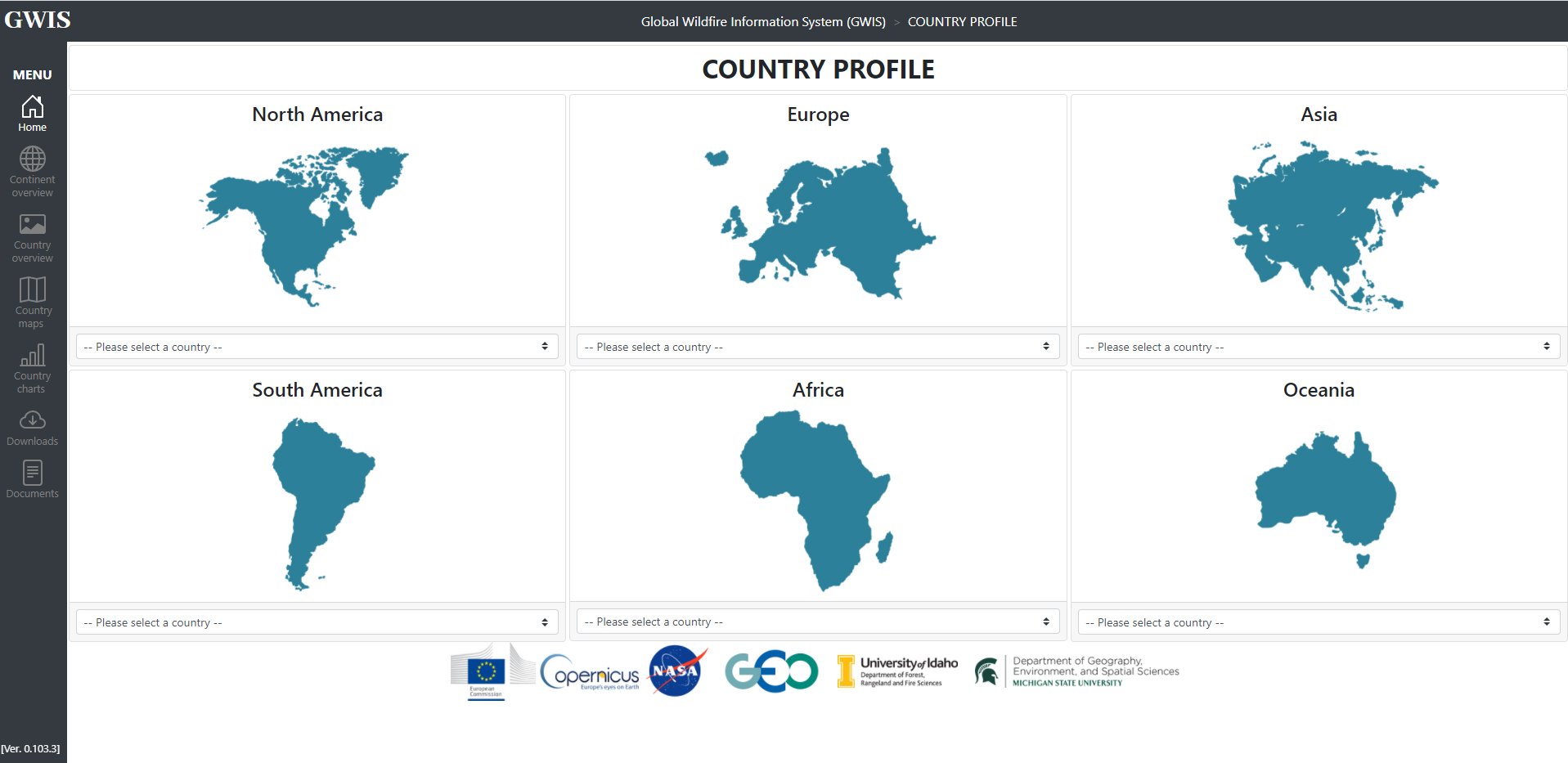GWIS (Global Wildfire Information System) country profile

permalink: Main URL
date: 02/02/2021
Information provided by the new GWIS services, for example on wildfire regimes, seasonality, land cover damage, emissions is essential in order to have a global assessment of wildfire risk, and to mitigate the effects of wildfires on land degradation, deforestation or biomass burning emissions and contribute to the implementation of Sustainable Development Goals (SDGs), reducing the impact of climate change and disaster risk. At scientific and policy level, many institutions and researchers have called for a global initiative to provide required data for evidence-based policies for wildfire management at all scales.
It is estimated that, worldwide, wildfires burn approximately 400 Million hectares of land every year, causing large environmental and economic damages and often human casualties. Climate change is exacerbating the impact of wildfires and critical fires have been reported in the last years as unprecedented events, for example in Brazil, Canada, USA, Europe, Australia, etc. However, comprehensive information on wildfires regimes and impacts has not yet been widely available to fire managers in the countries, the media and citizens all around the world. The 2020 State of Climate Services report of the World Meteorological Organization (WMO) highlighted the role of information and early warning systems such as the Global Wildfire Information System (GWIS) in disaster risk reduction, as climate change is leading to increasing damages from natural hazards such as wildfires, among other.
